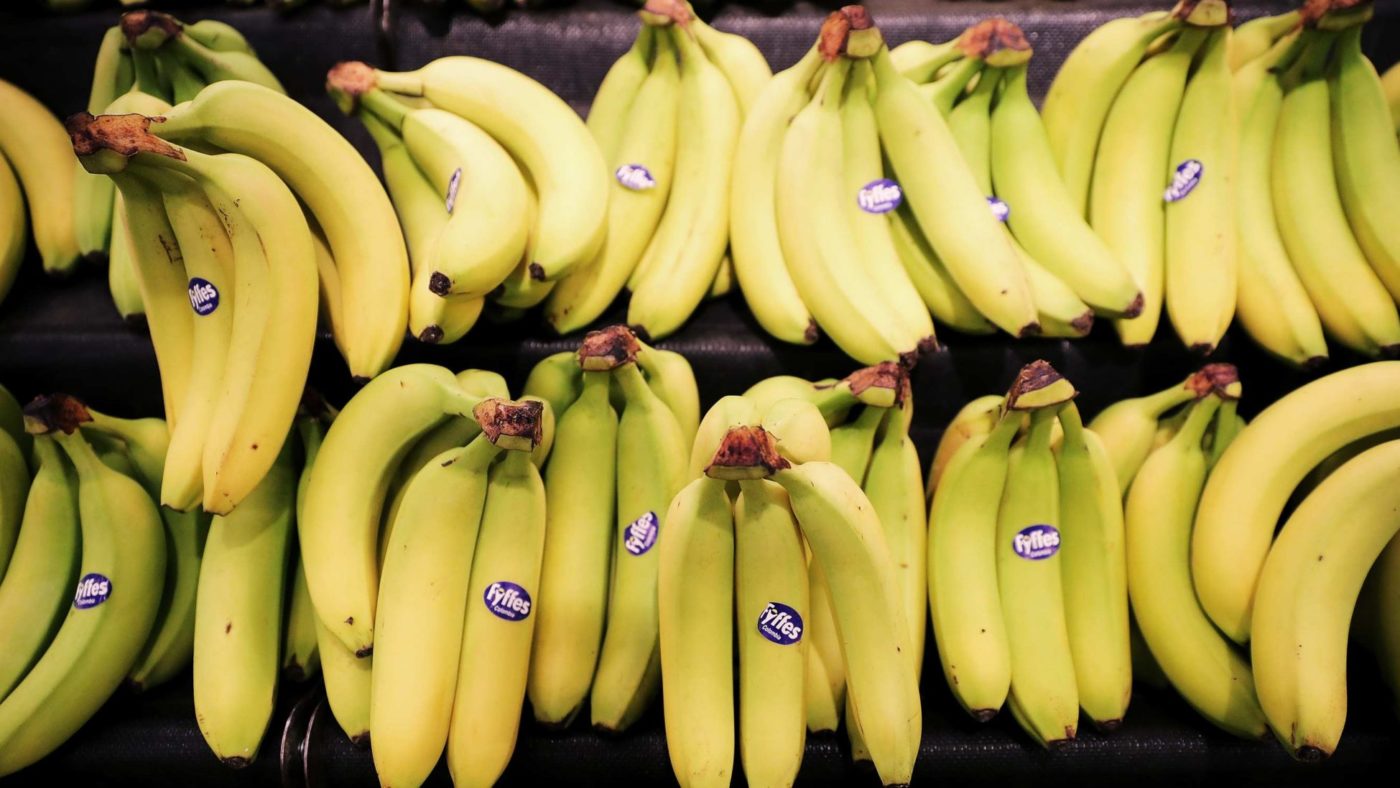It’s 30 years since we started to wash the stench of Soviet socialism out of the windpipes of the body politic, which means it’s about time to consider the importance of bananas.
The humble yellow fruit might seem a triviality, but it’s actually quite illustrative of the pitfalls of communism. As PJ O’Rourke once observed: “For all the meddling the Communist bloc countries have done in banana republics, they still never seem to be able to get their hands on any actual bananas.”
Another of O’Rourke’s pithier observations was that there’s something alarmingly wrong with a system that manages to make Germans poor.
What’s especially odd is that a banana company is an island of central planning in our free market world. The system is owned, usually at least, from end to end. The plantation is planned, it is known how much the production will be. The fruit are transported on specialist – planned – ships and the technology of stopping them ripening before they get to market is well known.
That such a basic commodity was a luxury good in East Germany tells you all you need to know about that system’s manifest failings. The fruit’s absence typified the shortages and penury of life in the old GDR. Indeed, when a shipment did come in there would be queues around the block.
Meanwhile over in West Germany, the banana was a potent symbol of the country’s 1950s economic miracle – so much so that West German president Konrad Adenauer once brandished one in the Bundestag and hailed it as “paradisical manna”.
The best part of the story is what happened immediately after the formal reunification of Germany, a year after the wall fell. As the hours and the minutes ticked down lorries full of bananas queued at the soon to be defunct border crossings. As midnight passed and freedom reigned again, they powered their way to every town, village and hamlet carrying their vital cargo.
By that first rosy dawn every shop, flower stall, tobacco kiosk and newsagent in the no longer socialist republic was festooned with bananas. it was a political statement, of course, a message to former East Germans that their new polity could deliver this simple and yellow thing with total efficiency. And such was the enthusiasm for this new bounty that for a time the Easterners were referred to their by their Western cousins as ‘bananen’.
It is possible to tell more complex tales that illustrate the starkness of the economic divide. Take the VW executive who went to see the Trabant factory at Zwickau. For all the Western auto companies were running slide rules over the varied Dacias, Skodas and the like. On giving his report back at Wolfsburg our stalwart German auto manager burst into tears. Those Trabbies were worth less than the raw materials entering the other end of the factory. Forget even the value of the labour or capital, the process of turning papier mache (I kid you not, I have personally witnessed a horse eating one) into a car body reduced the value of the original ingredients.
That is how you can make even Germans poor of course. Having to explain this to people raised in a more or less sane economic system is presumably what caused that executive to start blubbering in the boardroom.
It isn’t even just the inefficiency that grates, it’s the driving ethos of the whole system. For this is what planned economies do. They give the people – badly, late and expensively – what the planners think they should want, rather than what they actually do want.
Yes, bananas are trivial but again, as O’Rourke puts it: “The privileges of liberty and the sanctity of the individual went out and whipped butt.” Yep, in all its waxy yellowness.
Click here to subscribe to our daily briefing – the best pieces from CapX and across the web.
CapX depends on the generosity of its readers. If you value what we do, please consider making a donation.


